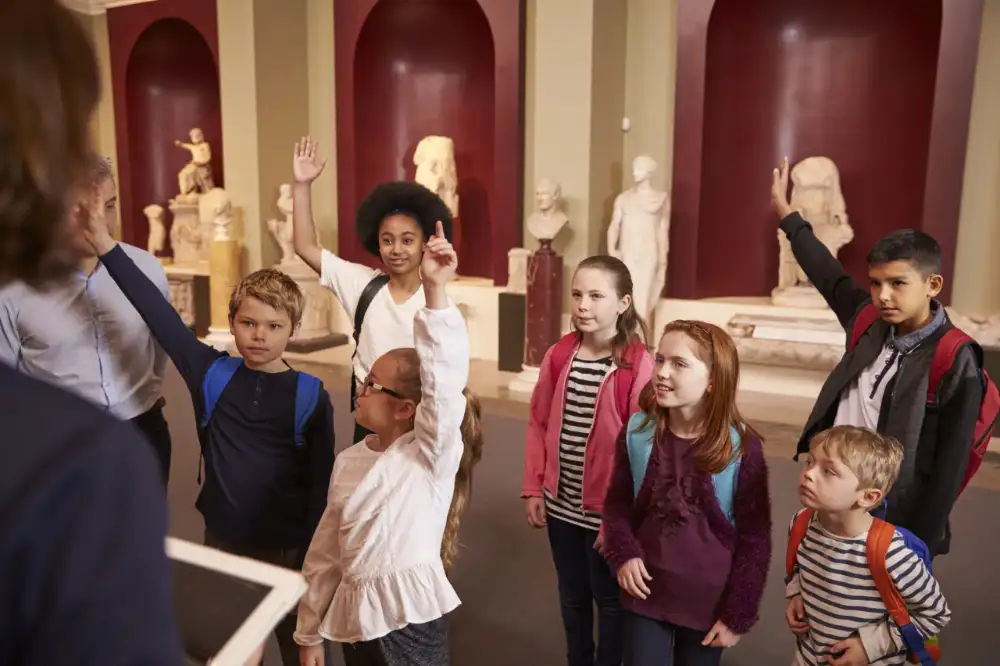It’s some months since we shared our draft Manifesto Asks for the 2024 General Election, and since then we have consulted further, and run a consensus workshop with our Advisory Panel members. We have honed the language and made some specific changes, and we thought it would be helpful to share them with you again at this final draft stage in order to be very transparent about our drafting process, and to seek further input from our members. You can read the latest version here.
As a general point we should stress that this document is not about quick wins. It has become clear to us that the extent of the erosion of the arts in schools over the past 13 years means that we’ve gone beyond seeking quick fixes and are seeking major systemic and foundational changes. We acknowledge in the endnotes that some short term accountability changes might be helpful, but have not highlighted these given our commitment to a complete overhaul of accountability measures. Here are some of the key points we have been seeking to address through our redrafting:
We are being clearer in our language: Nomenclature has always been an issue for our sector but we are clear that we are adopting the term Expressive Arts. This term emerged as popular through the Gulbenkian Arts in Schools report consultation process, during which we were influenced by the Welsh system, which has identified Expressive Arts as a curriculum area (one of six equal ‘areas of learner experience’), and it is a logical term to adopt to group the subjects together. We think it is extremely helpful to have a collective term for arts subjects in schools (just as the sciences are grouped together under STEM) – and ‘culture’ does not work for this purpose. Our definition, as with the Welsh definition, goes beyond the existing four discrete art forms currently embedded in England’s system (art and design, dance, drama and music) to include film and digital media.
Timeline: The system change required is not a quick fix – it will take more than one parliament to deliver. We have now acknowledged this in the document, and we are calling for a ‘clear national strategy for re-establishing high-quality arts provision for all, with practical and ambitious timelines for successful implementation that all partners can sign up to’.
Joy: We think that in recent years the joy the arts can bring into young people’s lives has often been overlooked in arts education policy documents, and we hope this is now better reflected, but we will extend this point as part of our ongoing value narrative work.
Artificial Intelligence: At the suggestion of our Advisory Panel members we are now addressing AI in the document as it is an important part of the value narrative around the benefits of the Expressive Arts. ‘Rapid developments in AI mean that studying the arts will be needed more than ever to develop and sustain critical thinking and young people’s reflective, imaginative, and values-driven capabilities.’
Societal challenges: We are now making reference to the role of the arts in bringing critical current issues to life in meaningful and dynamic ways. This is something that is identified in The Arts in Schools report: “Importantly it was stressed that [the arts] allow young people to use their voices for positive arts-based activism in productive ways. UNESCO makes the same point in the report of its International Commission on the Futures of Education: ‘Curricula that invite creative expression through the arts have tremendous future-shaping potential. Artmaking provides new languages and means through which to make sense of the world, engage in cultural critique, and take political action’.”
Youth voice is important: We are looking into commissioning a young people’s version of the document.
We can’t cover everything! This is a Manifesto Asks document to share with all political parties. Its purpose determines its brevity and tone, and we recognise that creating such a document usually involves compromises. For this reason we are considering producing a parallel extended document which provides more detail on implementation, and more data to substantiate some of the asks.
If you have further comments and suggestions, do get in touch, we’d love to hear from you. And to those of you who have already contributed, thank you. We will publish the final version in March.




